B+ | A toon and a human must work together to solve a murder. Directed by Robert Zemeckis Starring Bob Hoskins and Charles Fleischer Review by Jon Kissel |
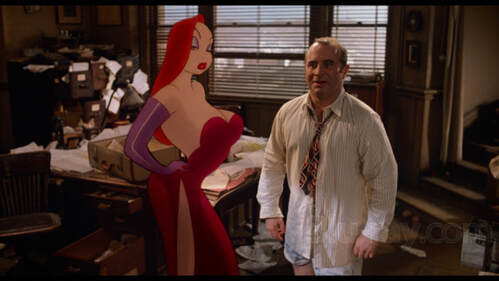
 With films like The Polar Express and Welcome to Marwen, Robert Zemeckis has spent most of the last twenty years trying to work out the kinks in CGI filmmaking. This quixotic pursuit is made all the more useless thanks to Zemeckis’ mastery of the old-fashioned animation style in Who Framed Roger Rabbit. Who needs ones and zeroes when you’ve got a game Bob Hoskins? Blending real actors and sets with animated characters, and vice versa, Who Framed Roger Rabbit still impresses by being committed, even when the effects aren’t quite seamless. Zemeckis has made a fool of himself for much of the 21st century, but in the 80’s and 90’s, the crowd-pleaser king sat on a throne of Deloreans and Acme hammers.
0 Comments
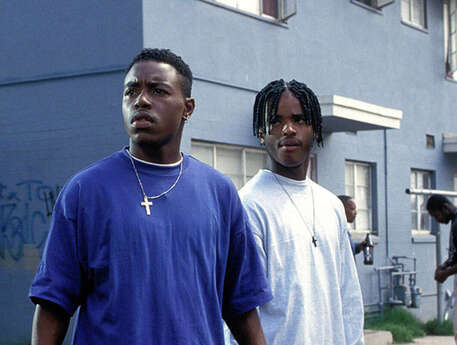 Boyz N the Hood made a huge splash in 1991 as an unflinching coming-of-age story for young Black teens growing up in the Crenshaw neighborhood of Los Angeles. Netting first-time director John Singleton a Best Director Oscar nomination at only 24, the film was a critical and commercial success and spawned a decade-long series of imitators. Twin directors Allen and Albert Hughes might’ve walked into a theater to see Boyz and taken it as a dare. Two years later, they’ll have made Menace II Society at a younger age than Singleton while also moving the harsh world of Boyz a few miles south to Watts for an uglier and more raw film that’s no less affecting. It’s no surprise that the easier to take film of the two was more successful, but twenty years later, the Hughes Brothers’ approach is the riskier and therefore more admirable approach. Boyz is a one-who-got-out story while Menace is an empathy test, and all things being equal, Menace’s degree of difficulty makes it one of the better coming-of-age films of the 90’s, regardless of location.
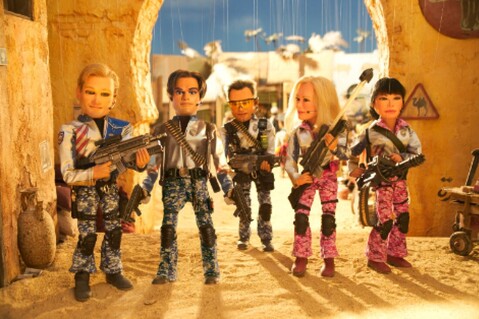 Spoofs take off on movie trends, while satire pokes fun at the real world. Trey Parker and Matt Stone hilariously combine the two with Team America: World Police, a film that uses the bombastic bravado of Michael Bay action films to skewer multiple varieties of American arrogance in the post-9/11 era. There was a period in my life when this was about as funny as a comedy could possibly be. Self-serious puppets on a film production that isn’t interested in maintaining any kind of cinematic illusion made every scene a riot, but now, when Parker’s and Stone’s status as the ultimate Gen X nihilists has gotten tiresome and a certain kind of shitposter has poisoned their brand, Team America has lost some of its luster. It’s still hilarious as a spoof, but its satire equates being a blowhard with invading and destroying countries. Parker and Stone would discount that as saying this is a puppet movie, the hiding spot of every 4chan asshole making Pepe memes about crematoria.
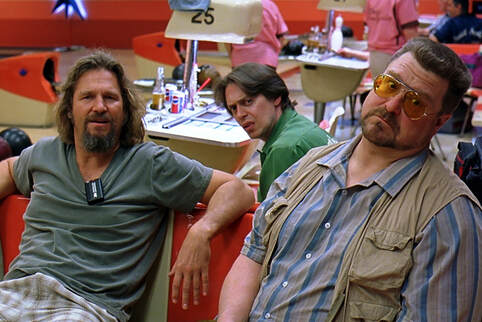 Joel and Ethan Coen were no strangers to comedy in 1998. The highly versatile directors had already made one crime comedy and another screwball comedy, while peppering jokes and absurdities into films as varied as a gangster epic or a cerebral film about writing. What ties all their films together is a fatalism and a resistance to self-importance, and that constant thematic refrain means that they always find ways to cut characters down who think too much of themselves. It makes them incapable of producing a wholly dramatic film, but it does allow for the possibility of a straight comedy. With The Big Lebowski, the Coen Brothers put aside all their impulses towards seriousness and flex their comedic skills to make one of the funniest movies that’s ever existed. They’ve arguably been the greatest working directors in five different decades, but this is perhaps where all their best characters and lines come from. As well-rounded as Fargo is, there aren’t annual festivals celebrating it. The Big Lebowski is a symphonic masterpiece of timing and imagery that demands consideration as one of the all-time great films while simultaneously scoffing at that kind of praise. Respect must be paid to the best boner joke ever constructed, but all this fuss over a boner joke?
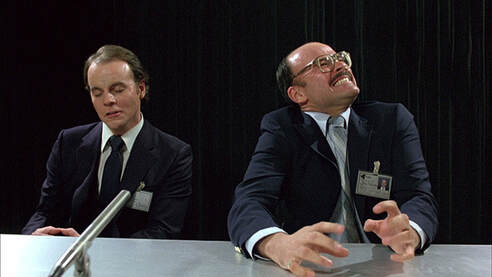 I once attended a lecture about South Korea exporting its culture under the assumption that it was going to be about the gonzo, transgressive films of Park Chan-wook and Bong Joon-ho. Instead, the lecturer discussed K-pop and its unique brand of manufactured wholesomeness, a phrase totally unfamiliar to fans of Oldboy and Memories of Murder. Of course, as great as those films are, K-pop has a much wider appeal and dominates the global interpretation of South Korean culture, and I, not being a fan, am a narrow-minded fool who thinks everyone interprets culture the same way I do. It’s like if all I knew of Canada were the films of favored canuck son David Cronenberg, and expected every Canadian to have an opinion on which of the dozens of fleshy vestigial appendages in his films were their favorite (Videodrome stomach or Dead Ringers connecting tissue for me). For all of Canada’s stereotypical courtesy and niceness, Cronenberg has been his own stalwart maple tree, pumping out acidic, dystopian sap for five decades with no signs of tapping out. Scanners fits squarely within his early career, where Cronenberg is still figuring his formula out and putting the pieces together. It’s not yet the total package of body horror, corporate satire, and taboo behavior that he’ll hit on shortly after Scanners, but here, things are coming together for this cinematic master even as he’s blasting prop heads apart. |
AuthorsJUST SOME IDIOTS GIVING SURPRISINGLY AVERAGE MOVIE REVIEWS. Categories
All
Archives
April 2023
Click to set custom HTML
|